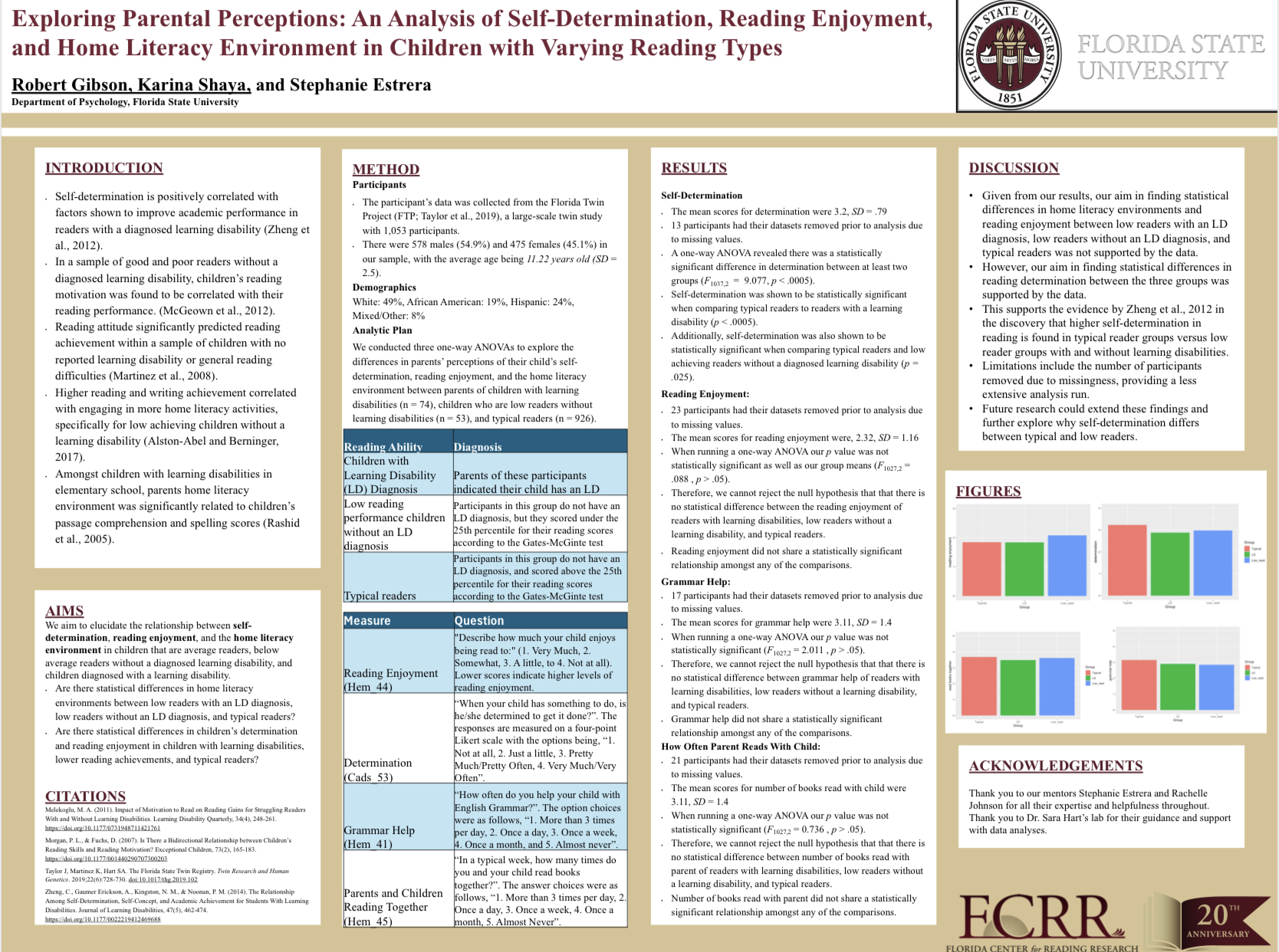Research Symposium
24th annual Undergraduate Research Symposium, April 3, 2024
Karin Shaya Poster Session 2: 10:45 am - 11:45 am/242

BIO
President of RENEW Organization, Member of NUSA Organization, Research student under Dr. Sara Hart’s Cognitive Psychology Lab. Research interests include learning disabilities, developmental disabilities, STEM learning, and special education.
Parental Perceptions of Self-Determination, Reading Enjoyment, and Home Literacy Environment in Children with Learning Disabilities and Low Reading Performance
Authors: Karin Shaya, Stephanie EstreraStudent Major: Behavioral Neuroscience
Mentor: Stephanie Estrera
Mentor's Department: Psychology Mentor's College: Florida State University Co-Presenters: Robert Gibson
Abstract
Current work suggests that self-determination, reading enjoyment, parent reading assistance, and grammar help may affect children’s reading abilities. Self-determination is strongly correlated with academic and reading performance (Zheng et al., 2014). Additionally, higher levels of reading motivation are strongly associated with better academic performance, and reading enjoyment is strongly correlated with higher levels of reading proficiency (Morgan et al., 2007). Children with learning disabilities tend to have lower levels of reading enjoyment and motivation, which could contribute to lower reading ability (Melekoglu, 2011). Children’s reading ability is also impacted by their home literacy environment (i.e., the amount of time parents spend reading with their children and helping with grammar). In this study, we conducted a one-way ANOVA to explore the differences in parents’ perceptions of their child’s self-determination, reading enjoyment, and the home literacy environment between parents of children with learning disabilities (n = 75), children who are low readers without learning disabilities (n = 53), and typical readers (n = 926). Our sample was drawn from the Florida Twin Project (FTP; Taylor et al., 2019), a large-scale twin study on reading. We found that all variables, except for self-determination (m = 3.2, SD = .79), were not statistically significantly different between the groups. Currently, there is a gap in the literature on how parents’ perceptions of their child’s behaviors related to reading differ between different types of readers, and we are building on the current work through our study by looking at these measures.
Keywords: Reading, Parental, Learning Disabilities, Performance, Home Literacy Environment


